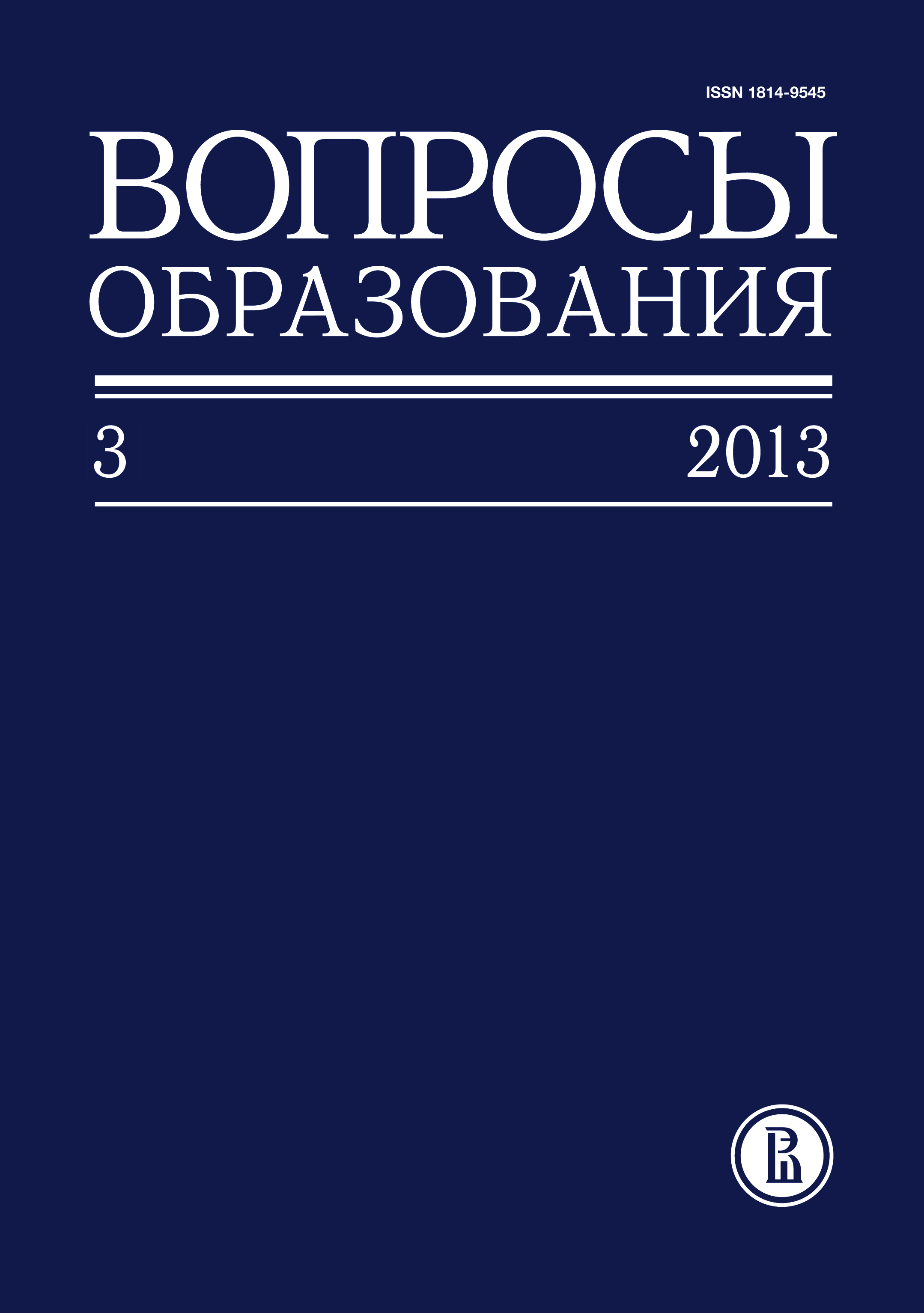Combining Work and Study in Universities: New Practices or New Implications?
Abstract
Vera Kharchenko, teaching assistant in the Theoretical and Applied Sociology Department of Sociology Faculty, Federal State Budgetary Educational Institution of Higher Professional Education “Ural State Pedagogical University”, Yekaterinburg, Russian Federation, award winner in the 2012 Young Scientists Research Paper Competition. Email: verakharchenko@yandex.ru
Address: 26 Kosmonavtov Ave., Yekaterinburg, 620017, Russian Federation.
Using empirical observations, the author has explored how full-time students combining higher education with employment opt for universities, what motivates them to look for employment, and what methods they use to find a job during their period of studies. The paper also investigates into freelance as one of the work and study options.
An analysis of university selection criteria has shown that most applicants don’t have a clear vision of their future profession, required skills, abilities, and competencies.
Analyzing the motivation for combining work and study, the author has mainly focused on the positive reasons, such as desire to get an employment experience (so as to satisfy employers’ demands), intention to get a professional practice in the selected subject area (so as to take higher-paying positions in future), ambition to get employed prior to graduation (so as to minimize risks associated with job hunting).
A recent type of employee — a freelance student — is described. Freelance students learn to apply information and communication technologies required in today’s labor market, develop personal responsibility and self-education skills, and thus have a competitive edge when getting employed. However, this competitive edge would be much more powerful if their freelance occupations correlated with the studies they pursue at universities.
Further investigation into this category of students will allow to develop a reasonable youth policy in higher professional education.









